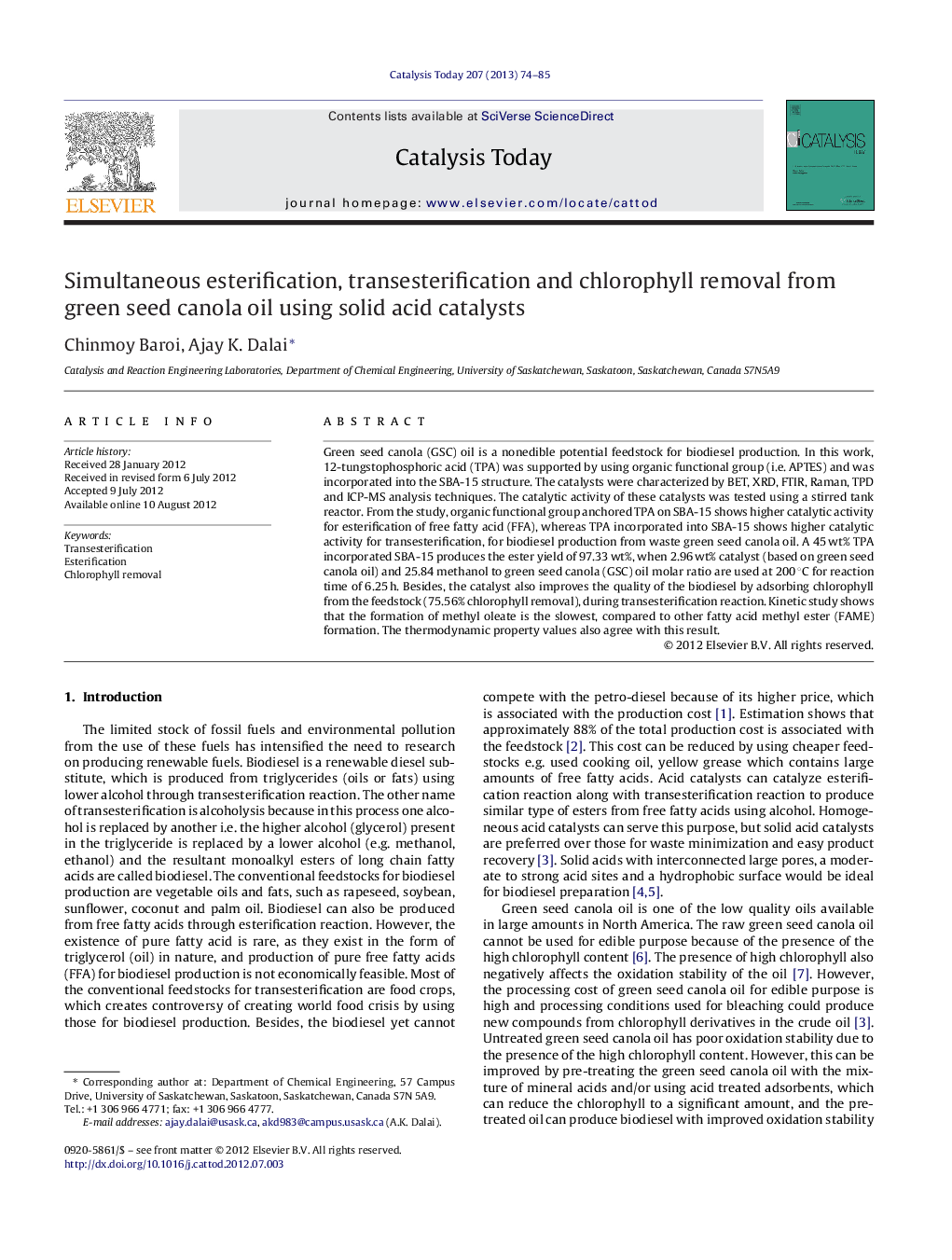| Article ID | Journal | Published Year | Pages | File Type |
|---|---|---|---|---|
| 54863 | Catalysis Today | 2013 | 12 Pages |
Green seed canola (GSC) oil is a nonedible potential feedstock for biodiesel production. In this work, 12-tungstophosphoric acid (TPA) was supported by using organic functional group (i.e. APTES) and was incorporated into the SBA-15 structure. The catalysts were characterized by BET, XRD, FTIR, Raman, TPD and ICP-MS analysis techniques. The catalytic activity of these catalysts was tested using a stirred tank reactor. From the study, organic functional group anchored TPA on SBA-15 shows higher catalytic activity for esterification of free fatty acid (FFA), whereas TPA incorporated into SBA-15 shows higher catalytic activity for transesterification, for biodiesel production from waste green seed canola oil. A 45 wt% TPA incorporated SBA-15 produces the ester yield of 97.33 wt%, when 2.96 wt% catalyst (based on green seed canola oil) and 25.84 methanol to green seed canola (GSC) oil molar ratio are used at 200 °C for reaction time of 6.25 h. Besides, the catalyst also improves the quality of the biodiesel by adsorbing chlorophyll from the feedstock (75.56% chlorophyll removal), during transesterification reaction. Kinetic study shows that the formation of methyl oleate is the slowest, compared to other fatty acid methyl ester (FAME) formation. The thermodynamic property values also agree with this result.
Graphical abstractFigure optionsDownload full-size imageDownload high-quality image (88 K)Download as PowerPoint slideHighlights► Hydrophobicity favors esterification reaction. ► Strong acidity favors transesterification reaction. ► Simultaneous chlorophyll removal is possible by the solid acid catalysts.
